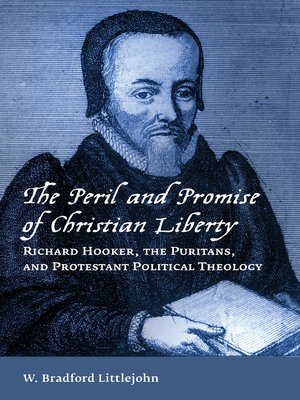The Peril and Promise of Christian Liberty
ebook ∣ Richard Hooker, the Puritans, and Protestant Political Theology · Emory University Studies in Law and Religion (EUSLR)
By W. Bradford Littlejohn

Sign up to save your library
With an OverDrive account, you can save your favorite libraries for at-a-glance information about availability. Find out more about OverDrive accounts.
Find this title in Libby, the library reading app by OverDrive.



Search for a digital library with this title
Title found at these libraries:
| Library Name | Distance |
|---|---|
| Loading... |
How do Christians determine when to obey God even if that means disobeying other people? In this book W. Bradford Littlejohn addresses that question as he unpacks the magisterial political-theological work of Richard Hooker, a leading figure in the sixteenth-century English Reformation. Littlejohn shows how Martin Luther and other Reformers considered Christian liberty to be compatible with considerable civil authority over the church, but he also analyzes the ambiguities and tensions of that relationship and how it helped provoke the Puritan movement. The heart of the book examines how, according to Richard Hooker, certain forms of Puritan legalism posed a much greater threat to Christian liberty than did meddling monarchs. In expounding Hooker's remarkable attempt to offer a balanced synthesis of liberty and authority in church, state, and conscience, Littlejohn draws out pertinent implications for Christian liberty and politics today.







